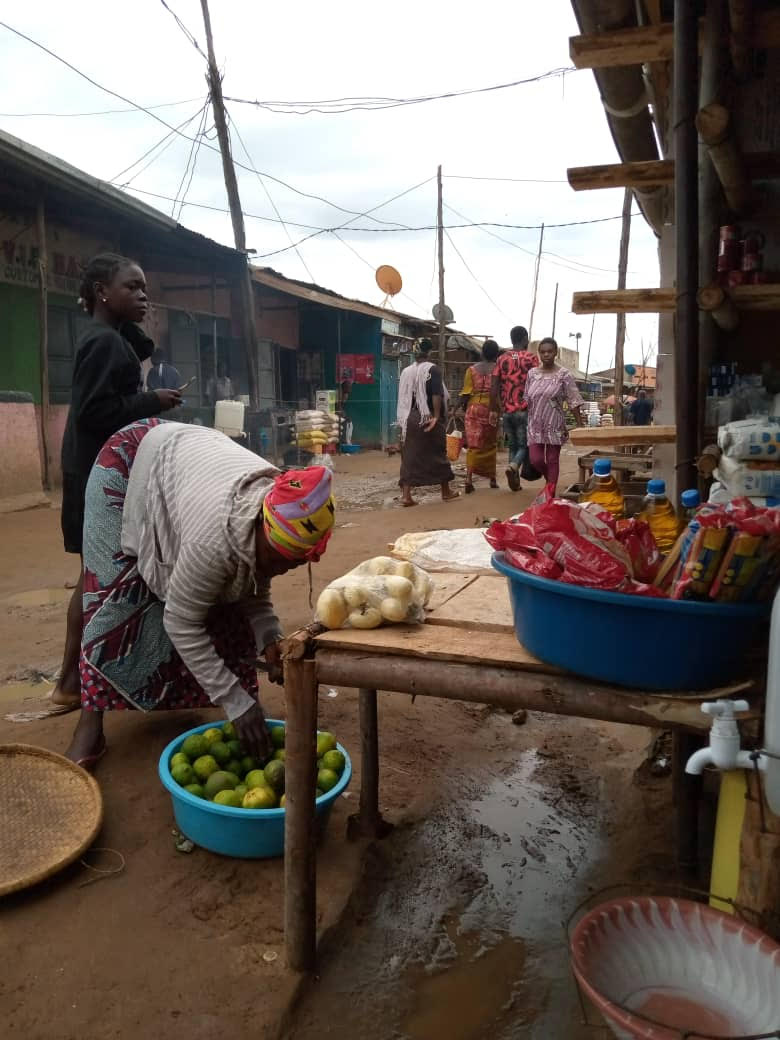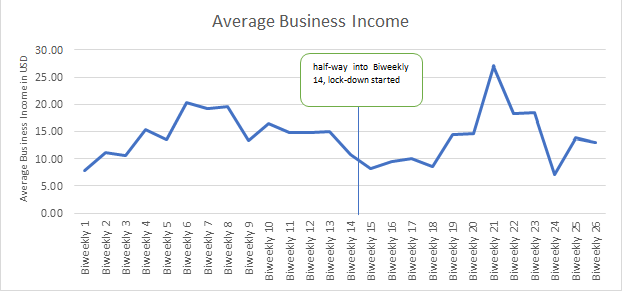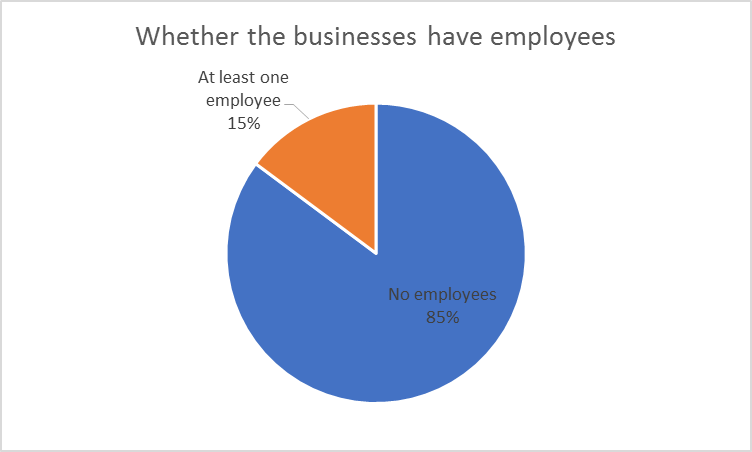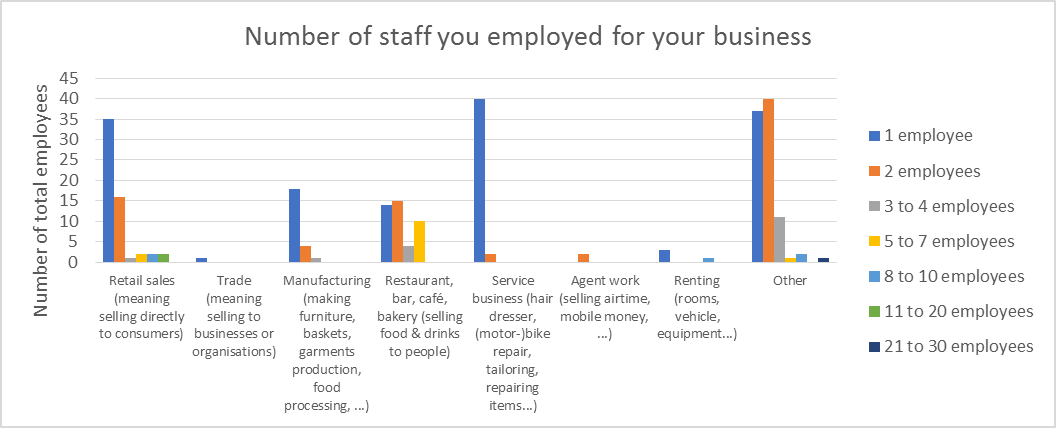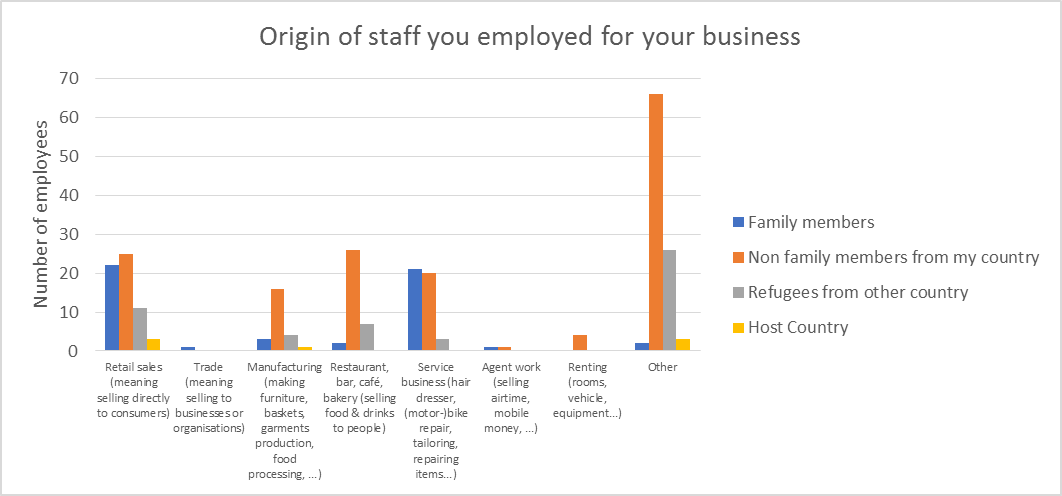Uganda’s Refugee Policy has been acknowledged as the most progressive one in the world. It allows refugees to have freedom of movement, the right to work, and the freedom to establish businesses. This intends for refugees to attain some level of self-reliance and perhaps create employment opportunities for other refugees and host communities. This article aims at looking closely at businesses by refugees in Nakivale and Kiryandongo settlements in Uganda.
On behalf of Opportunity International, L-IFT has been interviewing about 165 refugees on a biweekly basis. So far, 26 biweekly interviews have been conducted which means that we have been tracking their income, expenses, the number of employees of their business, and the origins of their employees for about a year. This gives us a general overview of the refugees’ business conditions.
According to the baseline, 52 percent had some form of income generation (small business). The most common business type is retail business (meaning selling directly to consumers). As indicated earlier, every biweekly, the respondents are asked the amount of income they earned in their business in the previous two weeks. On average the earned business income is 13$ per respondent per two weeks. It is much higher comparing it to the average employment income which is 1.87$ per respondent per two weeks. It is also four times higher than the cash transfer refugees receive to survive which is currently about 6$ per month. The following graph shows business income earned on average over the biweeklies. It can be seen; that the income level is steady even through the pandemic and the difficult lock-down.
With regards to creating employment opportunities, the following graph shows whether they have employed any staff in the previous two weeks for their business. About 15 percent of the businesses have at least one employee.
Out of those who have employees, retail businesses and service businesses account for a larger number of employees.
Regarding the origin of staff they employed, it is mostly either from family members or non-family members from their own country which is expected. It is worth noting that a significant number of them have employed refugees from other countries which goes with the argument about creating employment opportunities for other refugees. However, the data hardly shows any case of a refugee employing staff from the host country (just four employees in total, two in retail businesses and two in ‘other’).
Overall, it is demonstrated that refugee-led businesses are generating income and employment. They are able to do this despite a number of challenges. In the biweekly 6 special[1] interviews, we asked them about the challenges they have in building their life as a refugee. For this article’s purpose, we zoomed in on responses only from those who own businesses. The most common challenge mentioned was “I don’t have access to capital/finance”. This is followed by “I don’t have contact with those who offer jobs” and “I don’t have access to land”. On the bright side, conflicts with people from other clans or conflicts with the host community have not been deemed a challenge.
[1] Every biweekly, they are asked one-time survey questions about different subjects which are called ‘special interview’ or ‘special questions’.
To conclude, resources concentrating on increasing support for businesses have the potential to create employment and wealth for refugees and the local community. Even if the businesses of Nakivale and Kiryandongo refugees are mostly concentrated on retail business and lack diversity, they have the potential to generate greater capacity with the right support.

